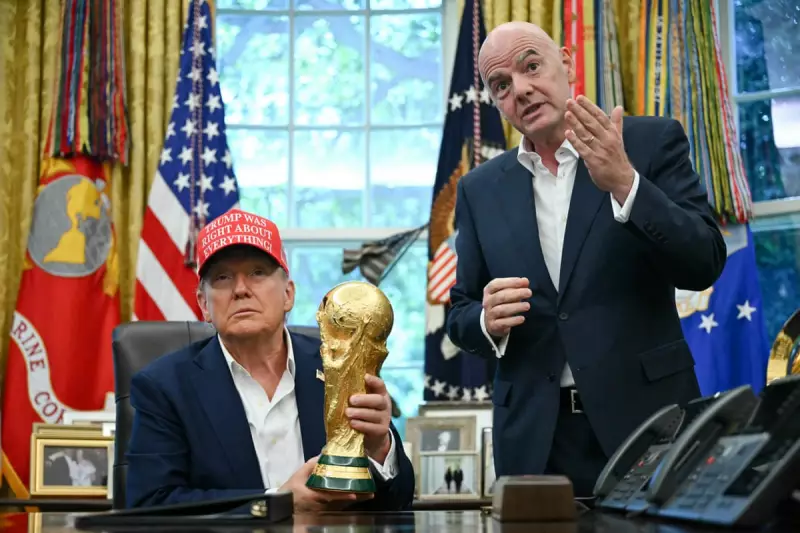
The glittering Kennedy Center Opera House in Washington DC, typically home to ballets and symphonies, became the unlikely stage for a major football controversy this week. In a move that has sent shockwaves through the global football community, former US President Donald Trump participated in the preliminary draw for the 2026 World Cup.
A Political Figure on Football's Stage
Trump's appearance at the prestigious event, held in the American capital, has drawn immediate and fierce condemnation from human rights organisations and numerous football associations. Critics argue that his involvement contradicts FIFA's own human rights policies and undermines the spirit of international unity that football strives to represent.
The draw itself, which determined the qualifying fixtures for North and Central American teams, was overshadowed by the political ramifications of Trump's presence. Many questioned the appropriateness of involving such a divisive political figure in an event meant to celebrate global sport.
Global Backlash and Criticism
Human Rights Watch led the charge, issuing a statement that condemned FIFA for providing Trump with a platform they claim he uses to "attack democratic norms and human rights." The organisation pointed to Trump's previous comments about migrants and authoritarian leaders as being fundamentally at odds with football's inclusive values.
Several CONCACAF member associations privately expressed discomfort with the arrangement, though most declined to comment publicly due to FIFA's strict protocols regarding World Cup events.
FIFA's Defence and the Road to 2026
Despite the controversy, the practical aspects of the draw proceeded without disruption. The event determined the qualifying matches that will eventually decide which teams from the region will join hosts United States, Mexico, and Canada in the expanded 48-team tournament.
FIFA officials maintained that the draw was primarily about football, though they acknowledged the "diverse opinions" regarding Trump's participation. The governing body emphasized its commitment to hosting an inclusive World Cup that brings nations together.
As the football world processes this unexpected political intrusion into the beautiful game, all eyes now turn toward the qualifying matches that will begin shaping the field for what promises to be a historic—and undoubtedly politically charged—2026 World Cup.





